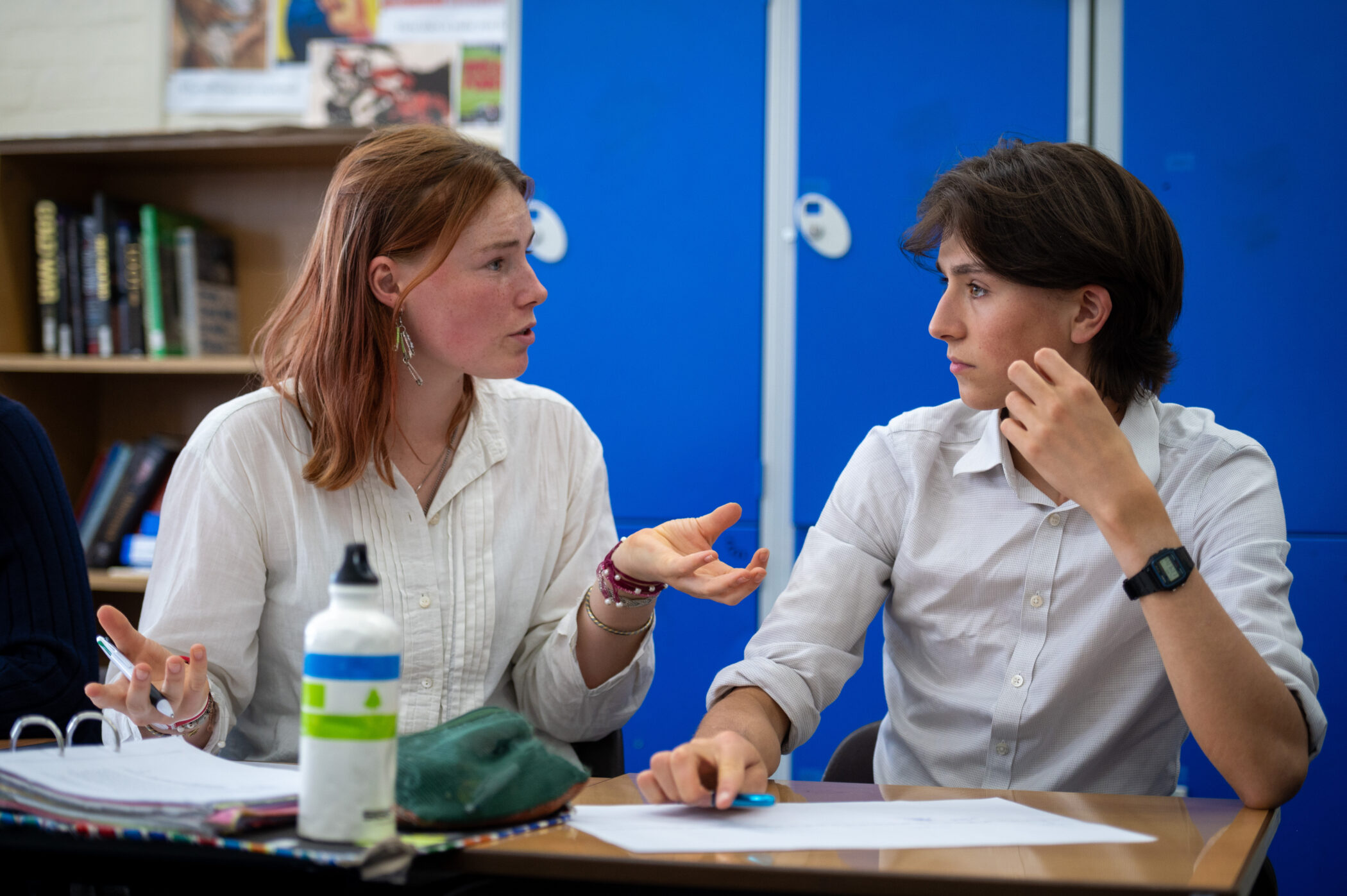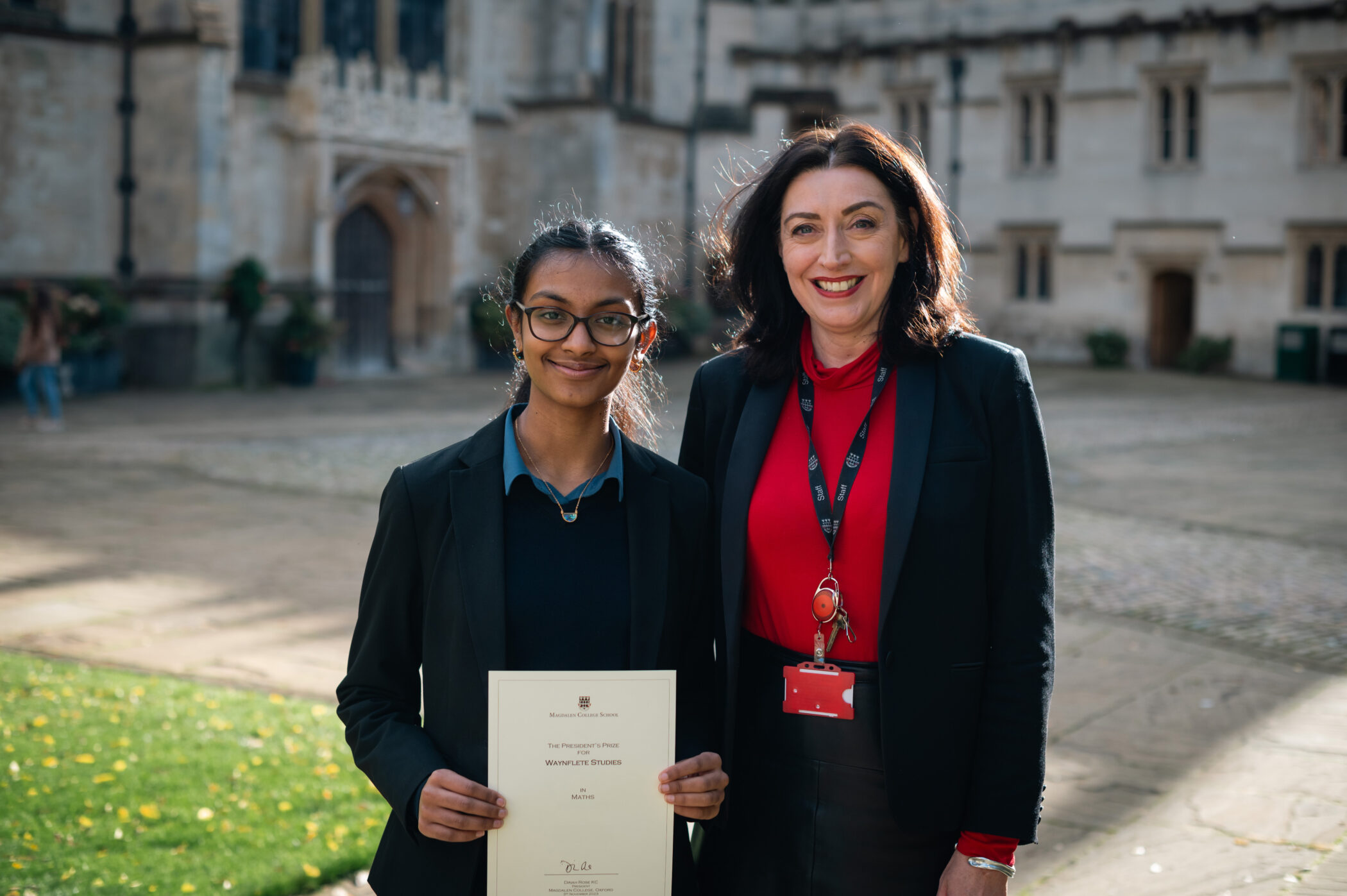Philosophy
Should you eat an alien? What is the relationship between the mental and the physical? What is it to be free? Our approach to Philosophy at MCS foregrounds the questions themselves.
It’s sometimes mistakenly said that in Philosophy you can say whatever you want, as long as you can argue for it. The problem with this characterisation is that what we might want to say and what can be coherently argued for often don’t coincide, so it’s mistaken because it puts the relationship between our thinking and our beliefs backwards: In fact, part of the fun of studying Philosophy is that it can reveal to us the surprising implications of our beliefs, and this confronts us with the awkward question of which of our beliefs we ought to keep and which we should reject.
At MCS, Philosophy is taught in the Sixth Form. Younger pupils encounter Philosophy through our Lilium programme and are invited to join the Philosophy Society.
“The unexamined life is not worth living”
Socrates
Middle School
Pupils in Upper Fourth encounter Philosophy through the ‘Thinking Skills’ component of the Lilium programme. The focus here is on learning how to formulate and assess arguments, ranging over questions of metaphysics (When does an aggregate of parts constitute an object?) to ethics (Under what circumstances would it be morally permissible to eat an alien?). Part of the aim here is to allow pupils to see how their answers to apparently abstract questions can inform their thinking about more concrete and familiar ones.
Sixth Form
The A-level Philosophy course tackles the ‘Big Questions’ head-on: The Lower Sixth combines Epistemology – the study of knowledge and justification – and Philosophy of Religion – including the concept of God, arguments for and against God’s existence, and the nature of religious language. In the Upper Sixth we turn to the relationship between mind and body, and in Moral Philosophy engage with theories of good action and questions about the existence of moral truths alongside very practical issues like the permissibility of simulated killing or eating animals.
Lessons are discursive, with a focus on the exchange and evaluation of arguments. This makes for robust debate, the ultimate aim of which is for pupils to develop their own, informed view.
Refer to the Sixth Form Curriculum guide for a more detailed breakdown of the A-Level Philosophy programme.
Further Inspiration
If you are thinking about studying Philosophy in the Sixth Form at MCS, you might want to start reading around the subject before you join. Our Study Preparation guides are a useful tool, detailing further reading around key topics.
PHILOSOPHY Study Preparation Guide
Extra-curricular
There is a broad extra-curricular programme focused on enriching and extending pupils’ engagement with philosophy.
- Philosophy Reading Group: this group meets weekly to discuss a philosophical text. Recent meetings have focused on moral questions and have involved pupils grappling with nature of moral reasons; worrying that friendship involves moral danger; reeling from the conclusion that we’re morally obliged genetically to enhance our children, and wondering what we’re required to do for charity. The Reading Group is particularly aimed at pupils in Sixth Form, though younger pupils are welcome to attend.
- The Philosophy Society: this group also meets weekly and is open to pupils in all years. A paper from a pupil or guest is followed by discussion, with issues ranging from free will and moral responsibility to the nature of causation to feminism and the #MeToo movement.
Trips
Trips are arranged for members of Philosophy Society to local lectures and events, including at local schools and the University. A-level philosophers enjoy an annual trip to a pupil conference in London. This provides an opportunity to extend their understanding of some familiar issues while introducing them to others.
 MCS ranks among the top independent secondary schools, and in 2024 was awarded Independent School of the Year for our contribution to social mobility.
MCS ranks among the top independent secondary schools, and in 2024 was awarded Independent School of the Year for our contribution to social mobility.

 28 of our pupils achieved 10 or more 8 or 9 grades in 2024.
28 of our pupils achieved 10 or more 8 or 9 grades in 2024.
 In 2023-24, MCS received over £448,000 in donated funds.
In 2023-24, MCS received over £448,000 in donated funds.

